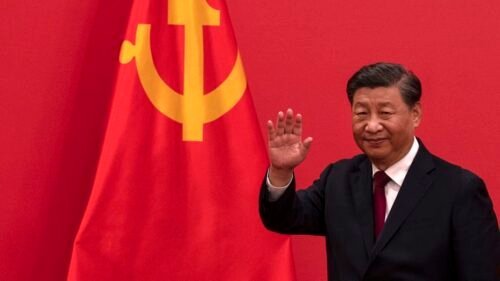$TSLA $AAPL #ChinaEconomy #GoldenWeek #PriceWar #TravelTrends #EconomicInsight #ConsumerBehavior #MarketAnalysis #ChinaNews #BusinessTrends #TravelIndustry #Inflation
Why Is China’s Golden Week Boom Hiding a Fierce Price War? Discover the Hidden Costs!
In the latest developments in china’s news, the recent Golden Week holiday has ignited a travel surge across the nation. This influx of vacationers and businesses into the travel sector has led to an unexpected consequence: a significant drop in prices. As consumers flocked to popular destinations, the competition among service providers intensified, revealing a fierce price war lurking beneath the surface of this apparent economic boom.
As thousands of travelers ventured out during the last public holiday of the year, businesses sought to attract customers through aggressive pricing strategies. Airlines, hotels, and tour operators slashed rates to capture the attention of vacationers, effectively igniting a downward spiral in prices. This situation not only raises questions about the sustainability of such pricing strategies but also highlights the changing dynamics within China’s economy.
Understanding the Price Dynamics During Golden Week
Historically, Golden Week has been a time of prosperity for the travel and hospitality sectors in China. However, this year marked a deviation from the norm. The surge in travel demand was met with a surprising level of price competition, indicating that businesses may be struggling to maintain profit margins. In many instances, the prices of flights and accommodations dropped significantly compared to previous years, leading analysts to speculate about the underlying factors driving this phenomenon.
The price war can be attributed to several factors. First, the pandemic has left many businesses grappling with excess capacity and lower-than-expected demand in the immediate past. As a result, companies are now engaging in aggressive tactics to lure customers back. Additionally, with the rise of online travel platforms, consumers have greater access to price comparisons, further amplifying the competitive nature of the industry.
The Hidden Costs of the Price War
While lower prices may seem advantageous for consumers, the long-term implications of this price war could be detrimental. Companies engaged in drastic price cuts may face reduced profitability, which can lead to cost-cutting measures, including layoffs or reduced service quality. This cycle can create a challenging environment for businesses striving to recover from the pandemic’s effects while maintaining operational stability.
Moreover, the price war reflects broader economic trends in China. As the government continues to navigate post-pandemic recovery, the emphasis on boosting consumer spending may inadvertently fuel greater competition among businesses. This competition can lead to short-term benefits for consumers but poses risks for the sustainability of the market in the long run.
The Future of China’s Travel Industry
Looking ahead, it is crucial for stakeholders in China’s travel industry to consider more sustainable pricing strategies. While attracting customers through lower prices can yield immediate results, it is vital to balance competitiveness with profitability. Companies may need to innovate their offerings or enhance customer experiences to differentiate themselves in a crowded market.
In conclusion, the Golden Week travel boom illustrates a fascinating interplay between consumer behavior and market dynamics. As travelers return to the skies and explore new destinations, the underlying price war reveals the complexities of China’s economic landscape. For more insights on market trends and investment strategies, explore our stock analysis section.
For those interested in the evolving landscape of cryptocurrency, consider checking out Binance’s latest offerings as well. Understanding these trends can provide valuable context as we navigate the changing tides of both travel and investment markets.











Comments are closed.